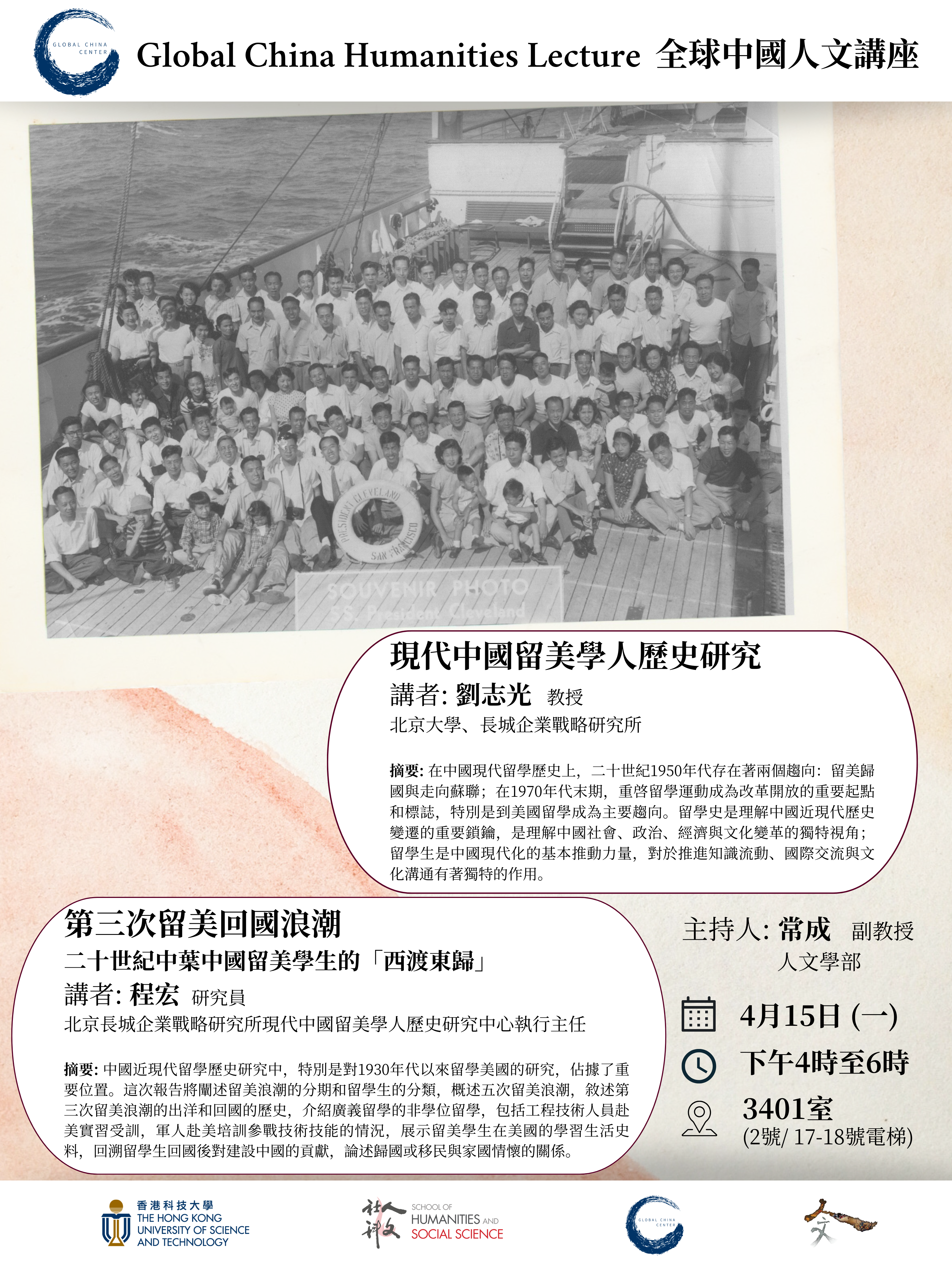Upcoming Events
Past Events
H. G. Wells in search of China: Chinese intellectuals and the making of a universal history, 1919-1935
Room 3401 (Lift 2 / Lift 17-18)
The Outline of History by the English writer H. G. Wells (1866-1946), first published in 1920, was a bestseller and a cultural phenomenon during the interwar period. As a disciple of Thomas Huxley and Darwinism, Wells narrates a universal history from the origin and evolution of life and mankind to the aftermath of the Great War. The popularity of the Outline was not only a Western phenomenon. It also received widespread attention and popularity among Chinese readers. Although Wells had never been to China, he acquainted and interacted with several Chinese intellectuals, including Liang Qichao, Ding Wenjiang, Fu Ssunien and Chen Yuan, during his writing. They criticized, helped, and influenced Wells’s writing about China in the bestseller. In this presentation, I will use archival materials from the University of Illinois Library collections, such as correspondence between Chinese intellectuals and Wells, to reconstruct the details of interactions between Wells and his Chinese friends. They also reveal Well’s evolutionary epic of human history and cultural legacy in a wider global context. READ MORE...
現代中國留美學人歷史研究 & 第三次留美回國浪潮
3401室 (2號/ 17-18號電梯)
在中國現代留學歷史上,二十世紀1950年代存在著兩個趨向:留美歸國與走向蘇聯;在1970年代末期,重啓留學運動成為改革開放的重要起點和標誌,特別是到美國留學成為主要趨向。留學史是理解中國近現代歷史變遷的重要鎖鑰,是理解中國社會、政治、經濟與文化變革的獨特視角;留學生是中國現代化的基本推動力量,對於推進知識流動、國際交流與文化溝通有著獨特的作用。 中國近現代留學歷史研究中,特別是對1930年代以來留學美國的研究,佔據了重要位置。這次報告將闡述留美浪潮的分期和留學生的分類,概述五次留美浪潮,敘述第三次留美浪潮的出洋和回國的歷史,介紹廣義留學的非學位留學,包括工程技術人員赴美實習受訓,軍人赴美培訓參戰技術技能的情況,展示留美學生在美國的學習生活史料,回溯留學生回國後對建設中國的貢獻,論述歸國或移民與家國情懷的關係。 READ MORE...

